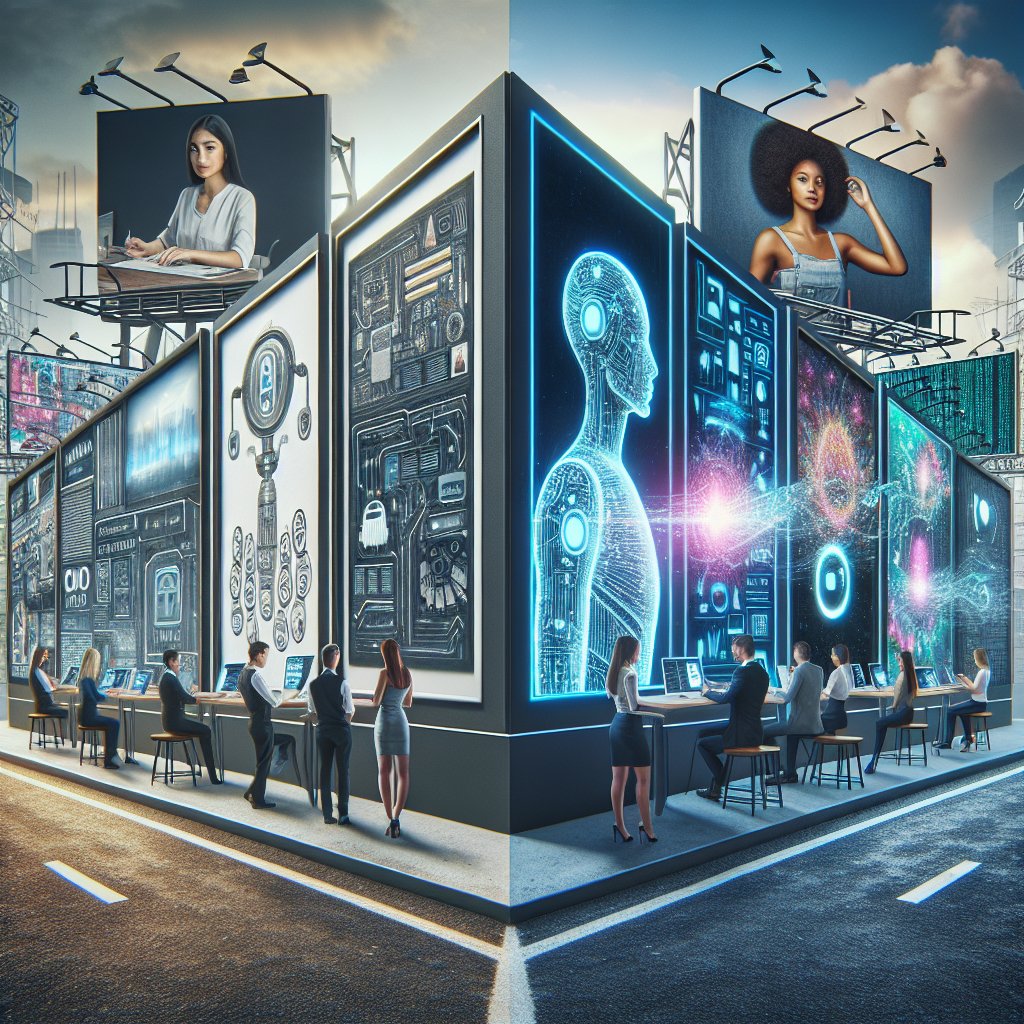The intersection of artificial intelligence (AI) and advertising is transforming the way brands engage with audiences, paving the way for a future where personalized campaigns and optimized content reign supreme. From predictive analytics to automated ad placements, AI is not only enhancing the efficiency of campaigns but also presenting questions about its role in the sustainability of traditional advertising jobs.
Use of AI for Advertising Professionals
In the dynamic realm of marketing, advertising professionals are embracing artificial intelligence (AI) to revolutionize the way brands connect with audiences. AI technology is increasingly at the forefront, offering unprecedented tools for data analysis, consumer behavior prediction, and personalization at scale. By leveraging AI, advertising experts can now craft highly targeted campaigns with efficiency, tapping into vast pools of consumer data to identify trends, optimize ad spend, and create more engaging content. This surge in AI utility marks a turning point in how ad campaigns are strategized, executed, and measured, ensuring that the right messages reach the right people at the perfect time.
The Potential for AI to Replace Advertising Professionals
The advertising industry is on the cusp of a transformative shift, with Artificial Intelligence (AI) being the main catalyst. As AI technology progresses, advertising professionals are witnessing a seismic change in their field, with tools capable of generating insightful customer data, automating creative processes, and optimizing ad campaigns in real-time. These advancements have sparked a discussion around AI’s capabilities and the role it may play in the future of advertising work. The groundbreaking developments in AI-driven analytics and programmatic advertising suggest that AI could significantly enhance the efficiency and precision of ad targeting, allowing brands to reach their desired audience more effectively than ever before.
The question of AI potentially replacing human creativity and strategic thinking in advertising looms large. Despite AI’s prowess in handling large datasets and executing tasks at speed, the human touch in understanding nuanced consumer behavior and crafting compelling narratives is still unmatched. AI is changing the dynamics of the advertising profession, pushing professionals to adapt and develop new skills that complement this technology. As AI continues to evolve, the symbiosis between human creativity and machine efficiency is likely to dictate the future landscape of advertising, posing both opportunities and challenges for those in the profession.
How Can AI Enhance Creative Campaigns in Advertising?
Artificial intelligence (AI) is transforming the advertising industry by bringing cutting-edge innovations that boost both creativity and effectiveness in marketing campaigns. AI technologies empower advertisers with data-driven insights, enabling them to understand consumer behavior and preferences on a deeper level. This granular understanding allows for the creation of highly personalized and targeted campaigns that resonate with audiences, resulting in increased engagement and improved conversion rates. Moreover, AI assists in the ideation process by suggesting fresh, innovative concepts and by optimizing ad placements through programmatic advertising, ensuring that the most impactful and creative messages are seen by the right people at the optimal time.
The use of AI in advertising does not stop at data analysis and logistics; it also extends to the creative process itself. AI-powered tools can generate unique visual elements, write compelling copy, and even compose music that can be integrated into advertisements, making the production of creative material both efficient and scalable. By harnessing the power of machine learning, advertisers can continually refine campaigns based on real-time feedback, ensuring that creative content remains dynamic and evolves with consumer preferences. In this AI-augmented landscape, advertising professionals are able to unleash their creativity, backed by intelligent automation that elevates the effectiveness of their campaigns to new heights.
What Challenges Do AI Technologies Pose to Traditional Advertising Jobs?
Artificial Intelligence (AI) technologies are rapidly changing the landscape of many industries, and the field of advertising is no exception. As AI systems become more sophisticated, they alter the fabric of traditional advertising roles through advanced data analysis, targeted content creation, and automation of routine tasks. This evolution presents challenges to professionals who have built careers on conventional methods and practices. Adaptability is key, as the expertise that once guaranteed job security may no longer be sufficient. Advertising professionals are now required to navigate an increasingly complex digital terrain, integrating AI tools into their strategies to stay relevant and competitive.
The implications of AI for advertising jobs are multifold, necessitating a reshaping of the skill set that these roles demand. For instance, the emergence of programmatic advertising, powered by AI, has transformed media buying into a system that requires a new level of technical knowledge. Similarly, creative jobs are impacted as AI algorithms can now generate ad copy and visuals, potentially diminishing the demand for human-generated creative content. These advancements challenge advertising professionals to explore innovative ways to harness the capabilities of AI without being overshadowed by it, ensuring continued value in a profession facing one of its greatest paradigm shifts.
How Will AI Impact Consumer Engagement Strategies in Advertising?
The advent of artificial intelligence (AI) is poised to revolutionize the realm of advertising by enhancing consumer engagement strategies in unprecedented ways. AI empowers marketers with sophisticated tools to analyze consumer behavior and preferences, enabling the delivery of personalized and highly relevant advertising content. By integrating AI-powered analytics, companies can predict consumer responses and tailor their campaigns to resonate more effectively with their target audiences. This hyper-personalized approach not only increases the chances of engaging customers but also fosters brand loyalty and maximizes return on investment for advertising efforts.







